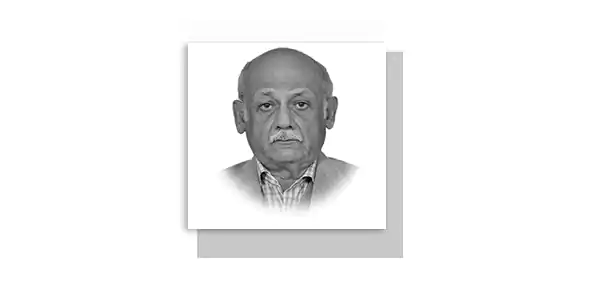Dr. Sardar Man Mohan Singh the quite unassuming modest economist and former Prime Minister of India and the first from the Sikh community to be the Prime Minister passed away into oblivion in New Delhi at the age of 92 on 24th December 2024.”India mourns the loss of one of its most distinguished leaders, Dr. Man Mohan Singh Ji,” Prime Minister Narendra Modi posted on X. “Rising from humble origins, he rose to become a respected economist. … As our Prime Minister, he made extensive efforts to improve people’s lives. Singh served as prime minister between 2004 and 2014, but political commentators say it was his time as finance minister in the early 1990s that was most significant. His policies during that period set India on the path of economic liberalization and globalization. The rise of modern India and the glittering success in the economic field is due to the policies formulated and the economic guidance provided by Man Mohan Singh and India owes him a debt of gratitude that cannot be repaid. The personality and character of Man Mohan Singh can best be described in the words of the Sikh Holy book Guru Garanth Sahib that says “ If thou desirest thy good, O Man, perform virtuous deeds and be humble” He was an epitome of humility and did numerous good deeds during his illustrious career in professional and public life.
Dr. Man Mohan Singh was born on 26th September 1932 in the small village of Gah near Chakwal in modern Pakistan. His humble origins and financial constraints did not prevent him from studying at the prestigious Govt. College Lahore and then moving to Cambridge on a scholarship where he did a masters in economics and then moved on to Oxford University to complete his Doctorate in Economics. He started his career with a job in the UN where he served for three years and then was appointed Advisor in the Ministry of Commerce and Industries and then as Chief Economic Advisor from 1972 to 1976 and then Governor Reserve Bank of India and finally Head of the Planning Commission from 1985 to 1987. In 1991 India was in the vicious grip of a crippling economic crisis and the then PM Narsima Rao entrusted Man Mohan Singh with the portfolio of Finance in his government and tasked him with the job of revitalizing the Indian economy. Singh proved himself equal to the tricky task and this modest Sikh managed to lead the Indian nation out of their economic crisis and financial difficulties. In 1996 in spite of good governance and economic success the Congress Party of India lost the general elections and Man Mohan Singh became the leader of the opposition in the upper house or the Rajya Sabha where he had to confront the new Prime Minister Attal Bihari Vajpayee.
Like many Indians of his age Man Mohan Singh could never forget his roots. He always had bitter sweet memories of his ancestral village Gah located in Chakwal Pakistan where he was born. He could never forget the brutal murder of his grandfather during the communal carnage in 1947. He came to Pakistan in 2019 for the opening ceremony of the Kartarpur corridor but did not visit his village as the scars of the 1947 bloodshed could never be healed in his memory. In the year 2004, the Indian National Congress led by the charismatic Sonia Gandhi won the general elections with a comfortable margin and Man Mohan Singh was chosen by the party high command to be their new Prime Minister and in spite of the controlling nature of Sonia Gandhi he managed to hold the position of Prime Minister from 2004 to 2014 serving two successful and eventful terms. The new government, under Man Mohan Singh, started with the objectives of helping the poor and marginalized people of the country, securing peace with Pakistan and removing tensions between India’s various religious groups. Sonia Gandhi herself was not very keen to improve relations with Pakistan but she did not obstruct or thwart the efforts of Man Mohan Singh in this regard. Singh initiated back channel talks with Tariq Aziz, the personal representative of General Pervaiz Musharraf, and the Man Mohan Sing-nominee for back door diplomacy, Satish Lambah, was also asked by Narendra Modi for a detailed briefing on the Indo-Pakistan back channel initiative during the premiership of Man Mohan Singh. The back channel initiative of Man Mohan Singh and the surprise visit of Narendra Modi to Lahore in 2015 are perhaps two historical events when Pakistan came very close to mending fences with India.
Manmohan Singh’s contribution to India is akin to Margaret Thatcher’s impact on the UK, centred on economic liberalism, free enterprise and the benefits of a market economy. His other significant contribution was his lifelong patriotic, selfless and altruistic service aimed at improving the economic conditions and lives of the common people. Under Singh’s leadership, India experienced rapid economic growth, though rising fuel costs led to inflation, threatening government subsidies for the poor. In 2005, Singh began negotiations with US President George W. Bush for a nuclear cooperation pact, which allowed India to access fuel technology and purchase nuclear fuel on the world market. However, by 2008, the deal sparked opposition from communist parties in Parliament, leading to a confidence vote. Singh’s government narrowly survived, but the process was marred by corruption allegations and vote-buying accusations. After leaving office, Singh lived in Delhi with his wife, historian Gursharan Kaur, and their three daughters. Reflecting on his public service, Singh said in his 2014 farewell speech, “My life and tenure in public office are an open book. Serving this nation has been my privilege. There is nothing more that I could ask for.”
—The writer is Professor of History, based in Islamabad.










